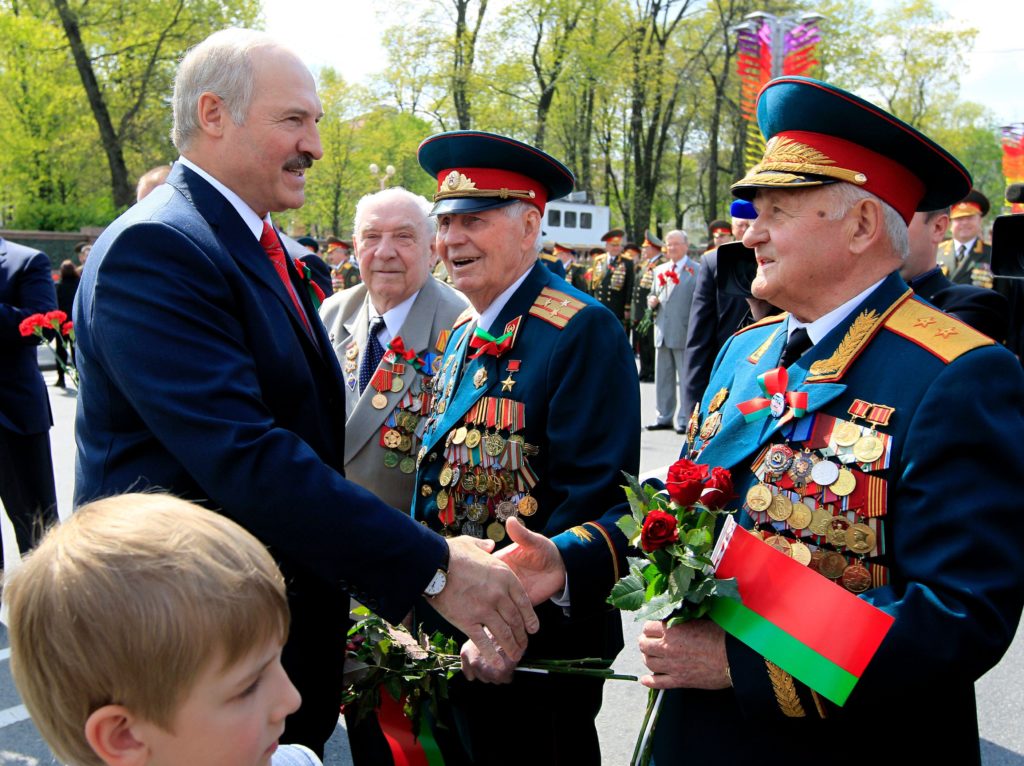MINSK
Belarusian President Alexander Lukashenko, increasingly isolated by Western sanctions linked to action against opponents, said security forces had been waging an anti-terrorist drive against “sleeper cells” in his ex-Soviet state and vowed to complain directly to German Chancellor Angela Merkel.
The European Union imposed the latest punitive measures in response to Lukashenko’s move to divert a scheduled airline flight to Minsk in May and arrest a dissident journalist and his girlfriend on board. Aimed at Belarusian exports – mainly potash – their application was still tempered to keep Russia – Belarus’s sole major ally – from benefitting by stepping into the breach with their own potash supplies.
“Today, we have exposed an attempt to set up terrorist ‘sleeper’ cells – so-called self-defence units,” Lukashenko said in a rambling address honouring the World War Two liberation of Minsk, perhaps the most hallowed of holidays in a country that suffered what were likely the war’s greatest proportionate losses.
“The aim of these cells was the violent overthrow of the government on a ‘day-X to be determined. They didn’t know when day-X was to occur or even what exactly it would mean.”
Lukashenko told the gathering, mainly servicemen, veterans and older attendees, that the cells were linked to Germany, Lithuania, the United States, Poland, and Ukraine. But he provided no evidence to back up any of his allegations.
He said a “large-scale anti-terrorist operation” had just been completed in the country of 9.5 million.
“Now that this has been done, we are going to make our findings known not just to the German Foreign Minister Heiko Mass or someone like that – we will go directly to the German Chancellor and others in the German government.”
He said these units had planned an attack on a Russian naval communications facility in the town of Vileika. And orders had been issued to seal the border with Ukraine to boost security and prevent an influx of weapons.
Lukashenko used brutal police force to crush mass rallies by protesters denouncing what activists say was his rigged re-election to a sixth term last year. More than 30,000 have been detained for various periods. Opposition groups have documented beatings and torture in detention. Opposition leaders, including Svetlana Tikhanovskaya, who has declared herself the winner in last year’s election, have fled into exile in neighbouring countries.
The president has been engaged in increasing entrenchment since the EU sanctions were imposed last month. Belarus threw out the EU’s top diplomat in Minsk and brought home its envoy from Brussels. Authorities this week ordered the closure of the Goethe Institute German cultural centre and ended a programme of educational exchanges.
One of the measures imposed earlier by Belarusian authorities – an end to cooperation aimed at stemming the flow of undocumented migrants to Europe through Belarus and Lithuania — appeared to be having some effect.
Lithuania declared a state of emergency after 150 illegal migrants – mainly from the Middle East and South Asia — crossed into the country from neighbouring Belarus in a single day — almost twice as many as for the whole of 2020. A team of six guards from the European Union’s border agency Frontex was dispatched to Lithuania to cope with the influx.
“Lukashenko seeks to weaponise migration to weaken our resolve for sanctions,” Lithuania’s foreign minister, Gabrielius Landsbergis, posted on Twitter. “Emergency or not — it shall not pass!”

